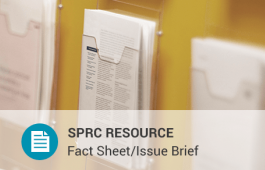 Older Adults
Older Adults
Suicide is an important problem among older adults. Suicide rates are particularly high among older men, with men ages 85 and older having the highest rate of any group in the country.1 Suicide attempts by older adults are much more likely to result in death than among younger persons. Reasons include:
- Older adults plan more carefully and use more deadly methods.
- Older adults are less likely to be discovered and rescued.
- The physical frailty of older adults means they are less likely to recover from an attempt.
Risk and Protective Factors
Suicide prevention efforts seek to reduce risk factors for suicide and strengthen the factors that protect individuals from suicide. Here are a few examples:
Risk factors
- Depression and other mental health problems
- Substance use problems (including prescription medications)
- Physical illness, disability, and pain
- Social isolation
Protective factors
- Care for mental and physical health problems
- Social connectedness
- Skills in coping and adapting to change
Reference
- Centers for Disease Control and Prevention. (2014). Fatal injury reports, national and regional, 1999–2014. Retrieved from http://webappa.cdc.gov/sasweb/ncipc/mortrate10_us.html
Learn More
- See the Recommended Resources below selected by SPRC personnel.
- See All Resources Related to Older Adults for a full list of materials, programs, trainings, and other information available from SPRC. Use the filters on the left to narrow your results.
- For more on other groups and settings, see our Populations and Settings pages.
Filter By:
Recommended Resources

Promoting Psychological Health and Suicide Prevention among Older Adults during COVID-19
This sheet provides information on how COVID-19 impacts the psychological health of older adults and strategies for coping, supporting older adults, and seeking professional help.

Increased Access to Mental Health Care for Older Adults: Getting Support during COVID-19
This sheet provides information on mental health care available during COVID-19 for older adults, and links to tools and tips for finding providers.

Reducing Loneliness and Social Isolation among Older Adults
This sheet provides information on the impact of loneliness and social isolation on older adults, tools to identify loneliness, and interventions to reduce loneliness and isolation.

Promoting emotional health and preventing suicide: A toolkit for senior centers
This toolkit provides ideas for integrating suicide prevention into the work of senior centers.

Promoting emotional health and preventing suicide: A toolkit for senior living communities
This toolkit contains resources to help staff in senior living communities promote emotional health and prevent suicide among their residents.

The role of senior living community professionals in preventing suicide
This sheet provides information to help professionals in senior living communities recognize and respond to suicide risk.
